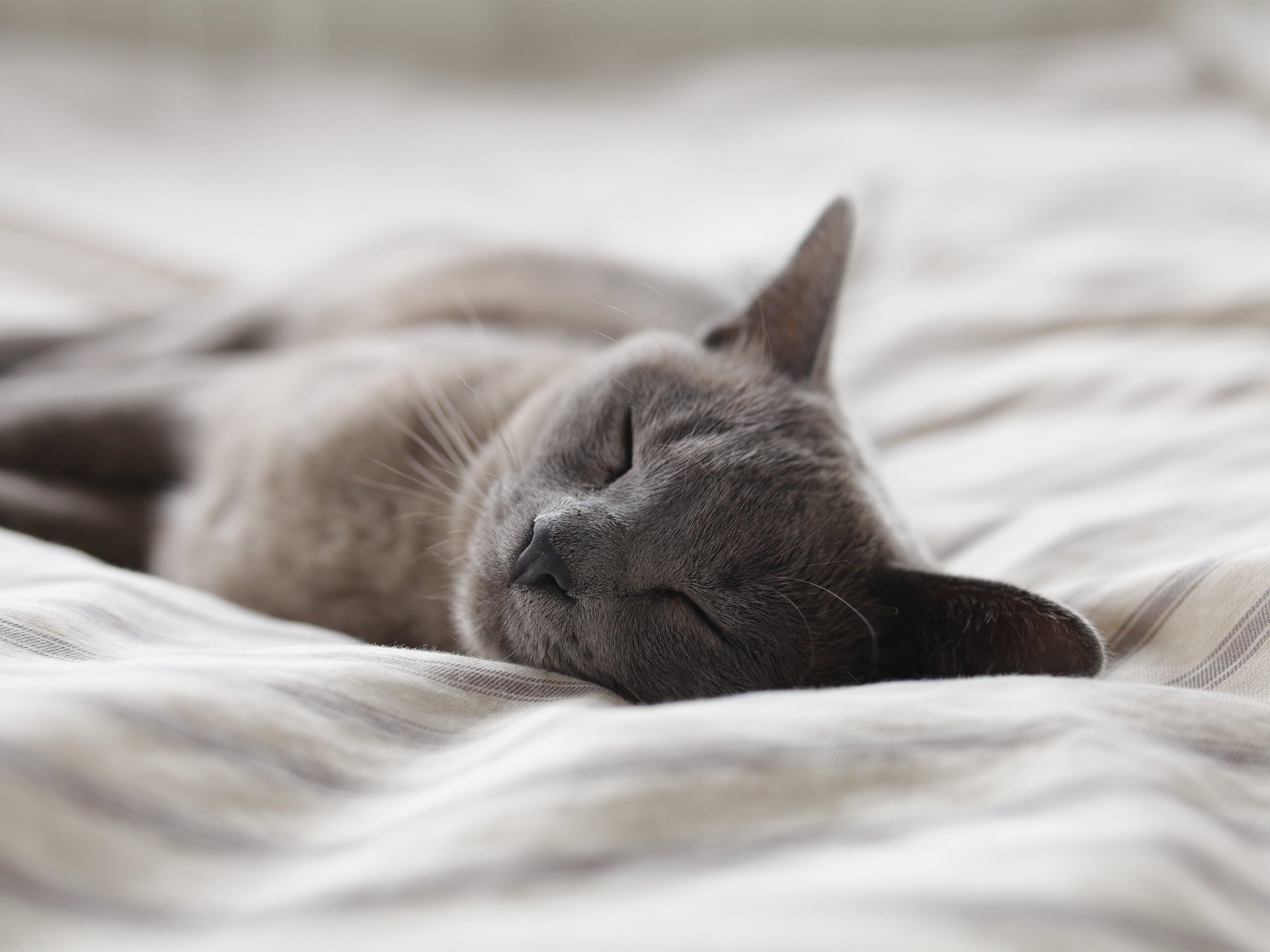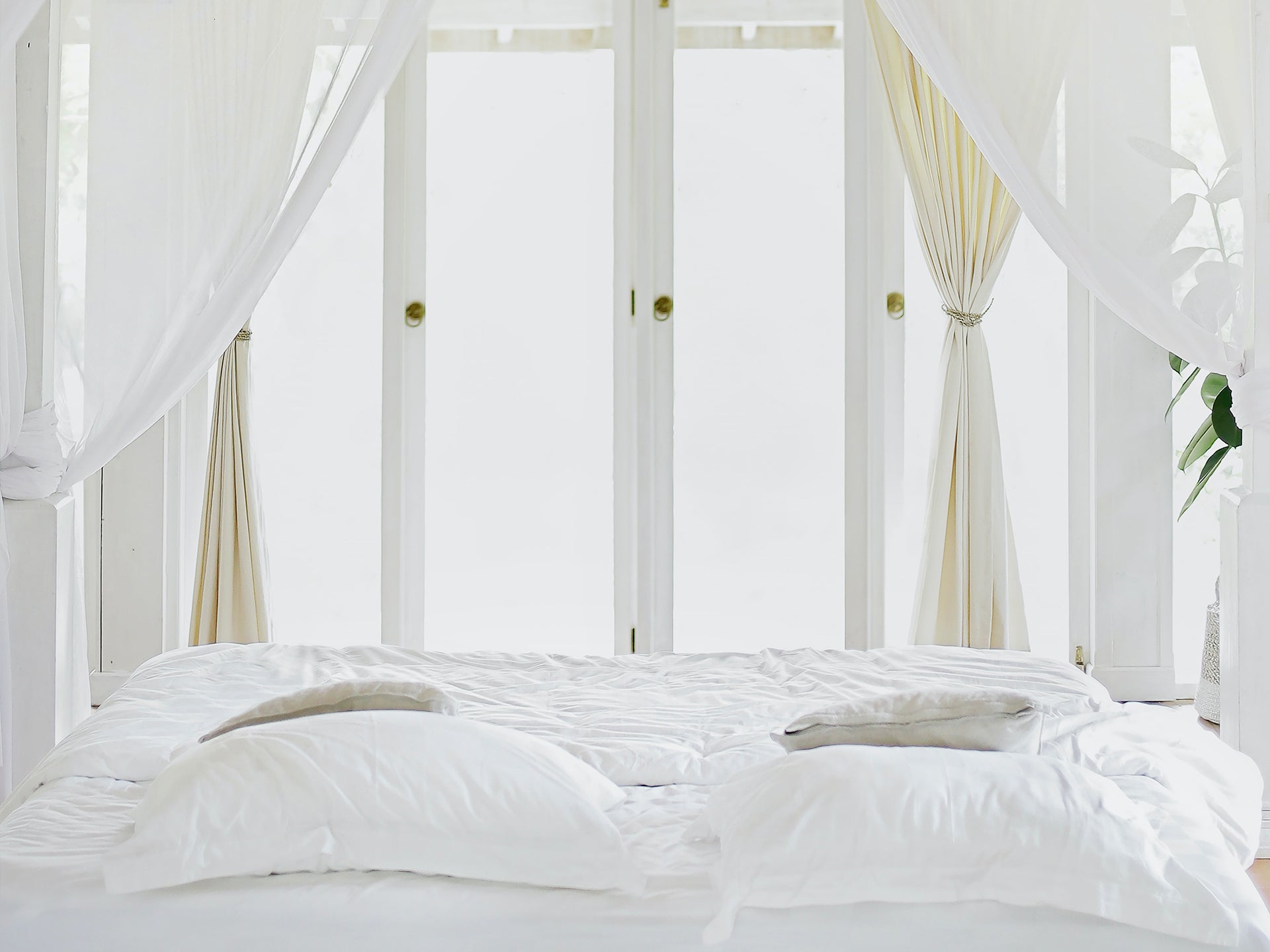Does waking up naturally each morning already turned into a lifelong dream for you? Do you often wonder if you could ever wake up without an alarm clock? Do you want to discover the secret to how to wake up without an alarm?
More often than not, you might jump out of bed when you hear the jarring sound of your alarm clock or roll over and hit the snooze button a few times as you try to clear your head and overcome the grogginess. You might begin to wonder whether you will forever depend on your alarm clock and never be able to wake up on your own.
Don't worry too much because there are certain things that you can do to feel refreshed in the morning and without the annoying sound of an alarm clock to wake you up. All you need to do is to train your built-in body clock known as circadian rhythm to help you with it.
But before that, you need to learn more about the health effects of alarm clocks and the amount of sleep that you need to have to function well.
1 The Health Effects of Alarm Clocks
When morning comes and your alarm sounds off, it is trying to wake you up from the REM (rapid eye movement) stage of sleep. The REM is the final point where you experience the deepest sleep.
When the alarm sounds off, it disrupts your body's inertia that is at rest (since you are sleeping). Your body uses the natural system inertia to wake itself up in a healthy way. Take note that there are two major types of inertia, and they are the inertia of motion and inertia of rest. A body that is in motion or at rest will remain in such a state for a certain period.
When the alarm suddenly sounds off while you are sleeping, there's an abrupt disruption to the body's inertia. A sudden surge of adrenaline can cause disorientation and stress that may ruin your entire day.
Some studies demonstrate the things that happen to the body each day when a gruesome alarm interrupts sleep. In Japan, the National Institute of Industrial Health researched the body's response when experiencing sudden disruption during sleep. The studies revealed that when the alarm continues to disrupt your sleep, your body suffers the consequence that may affect your blood pressure, weight, attitude, and overall well being.
The body releases cortisol as it prepares for wakefulness. The cortisol slowly raises the blood pressure and heart rate. The cortisol usually starts to rise slowly in your night's sleep second half. Your body is already preparing to wake up naturally around that time.
The sudden sleep interruptions by the alarm clock pre-empt the cortisol from having a gradual rise as the body prepares to wake up naturally. It leads to a sudden increase of stress hormones that cause strain to the cardiovascular system. It is not a good way to begin your day.

2 How much Sleep is Needed?
You will be able to stop using an alarm clock if you follow a consistent rhythm every day. If you hit the sack around the same time each night and tell yourself what time you need to get up in the morning before you drift off to La-la land, you will be able to make your body get up at the appointed time. However, you should not expect this to work if you are exhausted. No matter how much you train your circadian rhythm to follow a certain sleep-wake pattern you will not be able to reach your goal when you don't get enough sleep.
The first thing that you need to do is to figure out the amount of sleep that you need. Most people spend between 7 and 9 hours of sleep every night. You may need around the same amount of sleep or be satisfied with less than 7 hours.
After considering the number of sleep hours that you need, you must count backward from the time that you should wake up to get the right time to fall asleep. You may need a week without an alarm to determine the number of hours that you usually need to sleep.
Write down the time that you hit the sack and estimate the time that you have fallen asleep. Look at the time when you wake up and count the number of hours that you have been sleeping. You need to do this for a week. Get the average sleeping hours, and the result is the number of hours that you need to spend sleeping at night.
Keep in mind that you need to lie down at the same time each night to get the same amount of sleep. It can also help train your brain to follow the same sleep pattern so you can make do without your alarm clock.
If you need to adjust your sleep pattern, you may do so by creating a gradual change of 15 minutes until you reach your ideal sleep-wake pattern. If your sleep-wake pattern is 11:00 pm and 7:00 am and you need to start waking up at 6:00 am next month, you can adjust your sleep-wake pattern to 10:45 pm and 6:45 am. Make another 15-minute adjustment until you reached your goal.
When you sleep, your body goes through the different stages of sleep - from light to REM, which is the stage where you dream. After the REM stage, you go back to the light sleeping once more. It will be easier for you to get up at such a time.
The objective here is for you to wake up during the lightest sleep stage. You will feel less groggy when you have woken up completely.

3 How to Wake Up Without An Alarm
There are things that you can do to wake up naturally. However, you may need a combination of medical treatment and home remedies when you are suffering from certain conditions that cause excessive drowsiness or sleepiness.
Here are some of the things that can help you sleep and wake up better.
3.1 What to Do at Night - Ways to Wake Up Naturally Without an Alarm?
Minimize nighttime stress hormones
The majority of people acknowledge melatonin as the nighttime sleep hormone. However, many lack understanding regarding the synergetic relationship between melatonin and cortisol.
When night comes, melatonin rises as cortisol drops. During the day, it is cortisol's time to shine and melatonin should drop. The natural rising of cortisol level is also known as cortisol awakening response, and it is important to ensure proper development of the inner alarm clock.
To ensure a healthy surge of cortisol in the morning, you should be mindful of the symphony of melatonin and cortisol when the sun has set. To do this, you need to turn off your electronic devices around 7 or 8 in the evening when you want to get up at 5:00 am the following day. The same goes for when taking your meal. You need to take it earlier than usual if you need to get up early in the morning.
You need to prepare early so that all your bodily rhythms can enter sleep mode at an earlier time than usual. You may want to have a cup of chamomile tea while reading a book to induce sleep. You may also want to try taking a supplement with L-Theanine, which can calm your mind.
Set a consistent sleep-wake schedule
Training yourself to hit the sack at the same time each night and waking up at the exact hour every morning is the best way to get rid of the alarm clock. After practicing for two weeks or more, your body begins to automatically nudge you that it's time to wake up.
Create a bedtime ritual
Your bedtime ritual trains your brain and body that you are preparing to go to bed and can help you fall asleep on time. It will be easy for you to tolerate the early mornings when you have a good night's sleep. You will notice that you begin to feel sleepy once you start your bedtime ritual.
Avoid certain activities that can make it difficult to fall asleep
Drinking alcohol and caffeinated beverages, taking naps after 2:00 pm, and looking at your screen before you lie down are the activities that you need to stop doing if you want to fall asleep quickly. The blue light that your screen emits can suppress the melatonin release and cause a delay in your internal clock.

3.2 How to Make the Morning Easier
Make sure to catch some natural light in the morning
You need to remember that the natural light in the early morning can help a lot in supporting the sleep-wake cycle that you want to follow. It can shut down the natural secretion of melatonin in the pineal gland during day time.
To do this, you can take a walk where there is ample sunlight in the morning or drink your favorite beverage by a window that captures the rays of the sun. If you are in a place with darker setting, you may use dawn-simulating lights to achieve the same effects.
Make the bed upon waking up
You only need a few minutes to make the bed no matter how hectic your day maybe. It gives you a sense that you have finished an important task early on. It is an important task because it prevents you from crawling back under the cozy covers.
Play some upbeat music to get your body moving
Mellow tunes can make your body feel relaxed, while cheerful music can get you into the groove. Playing some upbeat music while getting ready for work can help you move your body according to the tempo of the music.

Take a stroll
The sunlight touching your face and the cool breeze blowing your way can help you feel more alive and alert. Taking a 15-minute walk or more can get your heart pumping. If you can't go out, do some stretches to let your blood flow without trouble.
Eat your breakfast for fuel
Even if you have no appetite in the morning, try eating a small meal. A piece of whole-grain toast and egg or even a cup of yogurt is enough to energize your body and get you going. It can help your brain and body to feel that it is morning and not the middle of the night, especially when you are in areas with a dark setting.

4 Bottom Line
In the weeks ahead, you may see yourself getting up before your alarm clock sounds off. When you stick to your routine, your body will adapt until you no longer rely on your alarm clock to wake up. You will feel well-rested and rejuvenated when you wake up naturally. Take pleasure in the stillness of the night during sleep and do everything you can during the productiv






